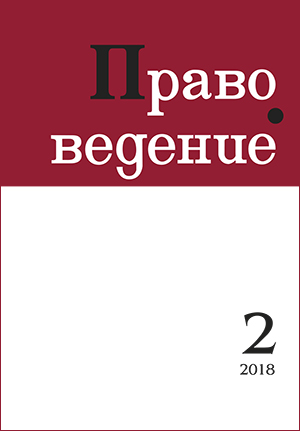Determination of parentage: selected comparative law issues — Germany, Poland, Russia
DOI:
https://doi.org/10.21638/11701/spbu25.2018.204Abstract
This paper discusses selected legal issues related to establishing parentage of a child and the possibility of reviewing such cases. The topic is presented from the perspective of fathers since their biological heritage is most frequently questioned. The paper presents a comparative analysis conducted on the basis of the case law of the European Court of Human Rights and focuses on comparing Polish, German and Russian family law. Critical remarks refer mainly to the lack of proper balance between the competing interests of the parties, including time limitations which make the process of reviewing paternity impossible. The study focuses on a unique procedure for determining parentage which came into effect in Germany in 2008. This regulation should make it easier for close family members to exercise their right to know their own identity without changing the established legal paternity (Abstammungsklärung — § 1598a BGB). This article attempts to find common ground between the sense of the quality of one’s life and the right to know one’s own identity. The results not only contribute to the academic debate surrounding these issues, but above all aim to improve the quality of law and thus the quality of family life. In a broader context, the publication attempts to answer the question whether a repercussion of the sense of the quality of life can be found in law? The statutes of law do not apply to this concept; it is also not a criterion for their interpretation. However, the absence of a direct reference to a sense of the quality of life does not mean that the term is legally indifferent. The thorny path to improving the quality of life is often full of legal difficulties, and the law is an extremely important element affecting the quality of our lives.
Keywords:
parentage of a child, establishment and reviewing of paternity, right to know one’s own identity, comparative law, family law, self-determination of a person, quality of family life
Downloads
References
Downloads
Published
How to Cite
Issue
Section
License
Articles of "Pravovedenie" are open access distributed under the terms of the License Agreement with Saint Petersburg State University, which permits to the authors unrestricted distribution and self-archiving free of charge.




